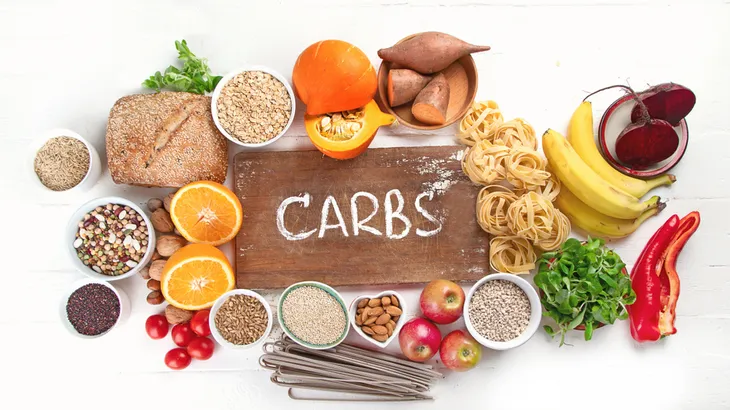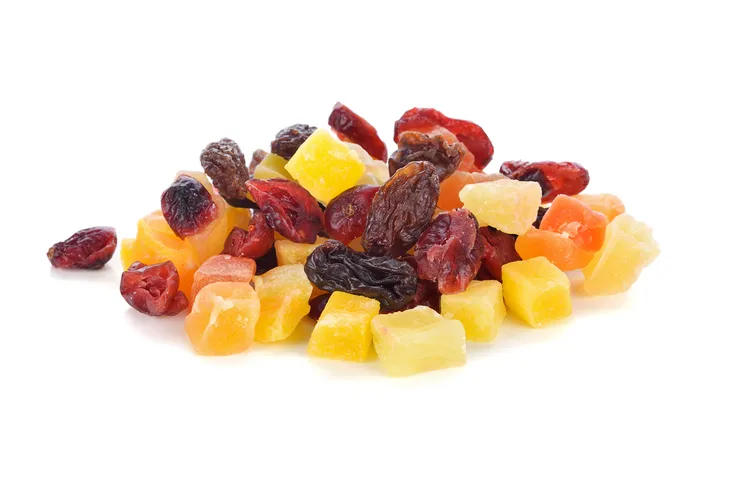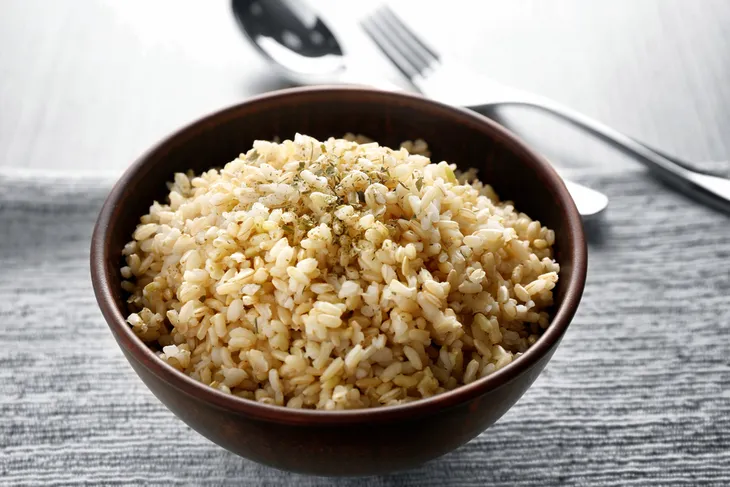- Carbohydrates are sugar molecules that get broken down into glucose and serve as your body’s main source of energy.
- Carbs can be broken down into two distinct categories: simple carbohydrates and complex carbohydrates.
- Simple carbs have little to no nutritional value, and typically should be avoided.
- Complex carbs, on the other hand, contain more nutrients and can provide your body with more energy.
Carbohydrates are a fundamental component of the modern diet. They exist in just about everything from fruits and vegetables to candy bars and breakfast cereals. But not all carbohydrates are created equally. While some keep you energized and satiated, others can cause unwanted energy crashes and unhelpful cravings. Understanding the difference between simple and complex carbohydrates is the first step towards healthier decisions and a healthier life. The advanced application of that knowledge can also help you get more out of your workday as well as your workouts.
What Are Carbohydrates?
Alongside fat and protein, carbohydrates are a primary macronutrient. More specifically, carbs are sugar molecules that get broken down into glucose and serve as your body’s main source of energy.
These abundant little energy creators are best understood when broken down into two distinct categories: simple carbohydrates and complex carbohydrates. Though both simple and complex carbohydrates are sugars, their differing chemical structures create contrasting reactions when consumed.
Carbs aren’t without their controversy. While some health industry pros insist on their importance, others are hell-bent on doing away with them entirely. The truth, as you’ll soon learn, lies somewhere in the middle.
Simple Carbohydrates
Simple carbohydrates, often referred to as simple sugars, owe their namesake to their relatively basic chemical structure. That basic chemical structure allows them to be absorbed by your body and used as energy quickly and easily.
Simple carbohydrates can be further categorized into single sugars (monosaccharides) such as glucose, fructose, and galactose, or double sugars (disaccharides) such as sucrose, lactose, and maltose. Simple carbs are found in many foods you likely eat daily. Let’s look at some examples next!
Simple Carb Examples
Simple carbs can occur both naturally and in heavily processed foods. Lactose is an example of a naturally occurring simple carbohydrate that’s found in many dairy products. Fruit, as well as some vegetables, also contain simple carbohydrates. These “whole food” sources of simple carbohydrates are indeed healthy, as the grocery items that contain them also typically contain dietary fiber, protein, and various micronutrients.
The added sugar typically available in processed foods is another common source of simple carbs and one that should be approached with caution. The added sugar abundant in candy, sugary drinks, syrups, table sugar, baked goods, and some cereals doesn’t provide much if any additional nutrition, which is why they’re frequently called “empty calories”.
Simple Carb Benefits
The more you read about simple carbs, the more reasons you’ll hear about why you should avoid them. They aren’t entirely without their practical use, though.
Whole food sources of simple carbohydrates like fruit can serve as a delicious vessel for other important dietary nutrients and fibers. A quick hit of processed carbs sourced from a piece of dried fruit of a high-carb drink may also help you get more out of your workout when in a rush.
Simple Carb Drawbacks
Sure, simple carbs may be beneficial in a few very specific instances, but for the most part, you should do your best to avoid consuming them whenever possible.
Why? Simple carbs that come from added sugars have little to no nutritional value. Unfettered consumption of simple carbohydrates can lead to weight gain, blood sugar spiking, energy crashes, and drastically increase your risk of heart disease, obesity, and type 2 diabetes.
Complex Carbohydrates
The other category of carbohydrate is conventionally referred to as complex carbs. Again, these kinds of carbs owe their namesake to their chemical structure. But, instead of being simple, complex carbs are a touch more, you guessed it, complex.
Complex carbohydrates contain more nutrients, are higher in fiber, and take longer to digest than their “simpler” contemporaries. That increase in chemical complexity offers you more bang for your caloric buck. Before we get to that though, let’s look at a few examples.
Complex Carb Examples
You’ve likely been eating complex carbohydrates from a very young age, whether you knew them to be complex carbs or not. Whole grains like brown rice, wild rice, and oatmeal are considered complex. As are grain-like foods such as quinoa and buckwheat.
It’s important to note that refined grains and the processed foods that they create are technically complex carbs too, though those are best to be avoided. Things like bagels, cakes, cereals, and crackers should be avoided, whether they say “whole grain” on the package or not.
Complex Carb Benefits
When consumed, both simple and complex carbohydrates are turned into glucose and used as energy. But unlike simple carbohydrates, complex carbohydrates also contain critical nutrients and fiber.
The differences may seem subtle, but they result in a more nutritious diet. The influx of fiber also causes complex carbs to take longer to digest, providing your body with a steadier supply of energy over a longer period of time.
Complex Carb Drawbacks
Complex carbohydrates are a critical component of the human diet, but that’s not to say that you’re free to eat them with reckless abandon. Complex carbohydrates are often calorie-rich, and eating too many of them could lead to significant weight gain if you aren’t careful. Everything in moderation, right?
Avoid going overboard by sticking to the recommendations of the American Heart Association of 150-calories of carbs per day.
Simple Carbs to Avoid
As previously mentioned, not all simple carbs are inherently bad. Simple carbs sourced from whole foods like dairy products, fruit, and vegetables are still fair game in moderation. But, if you’re looking for some hard and fast simple carb rules, it’s best to avoid anything processed.
Things with added sugars like syrups, cookies, candies, and sweet soft drinks should be avoided. Not only are they loaded with calories, but theyalso provide little to no nutritional value.
Complex Carbs to Seek Out
As if things weren’t complex enough for you, complex carbohydrates aren’t all created equally either. When pursuing the menu or strolling down the aisles at your neighborhood grocery store in search of beneficial complex carbohydrates, aim for whole grains.
Whole grains like brown rice, wild rice, and oatmeal are always a safe bet. As are non-starchy vegetables like asparagus and zucchini. Beans and legumes such as kidney beans, lentils, and chickpeas are also fantastic stand-ins for anyone looking to cut down on their meat consumption.
The Takeaway
We hope the time you took to read our comprehensive carbohydrate breakdown helped you better understand the differences, pros, and cons of simple and complex carbohydrates. It may seem like a lot of information to read about, but in practice, it’s quite easy to understand.
Say yes to whole foods and whole grains and say no to anything processed to protect yourself from energy crashes and supply your body with the nutrition it needs to help you get the most out of your day.















